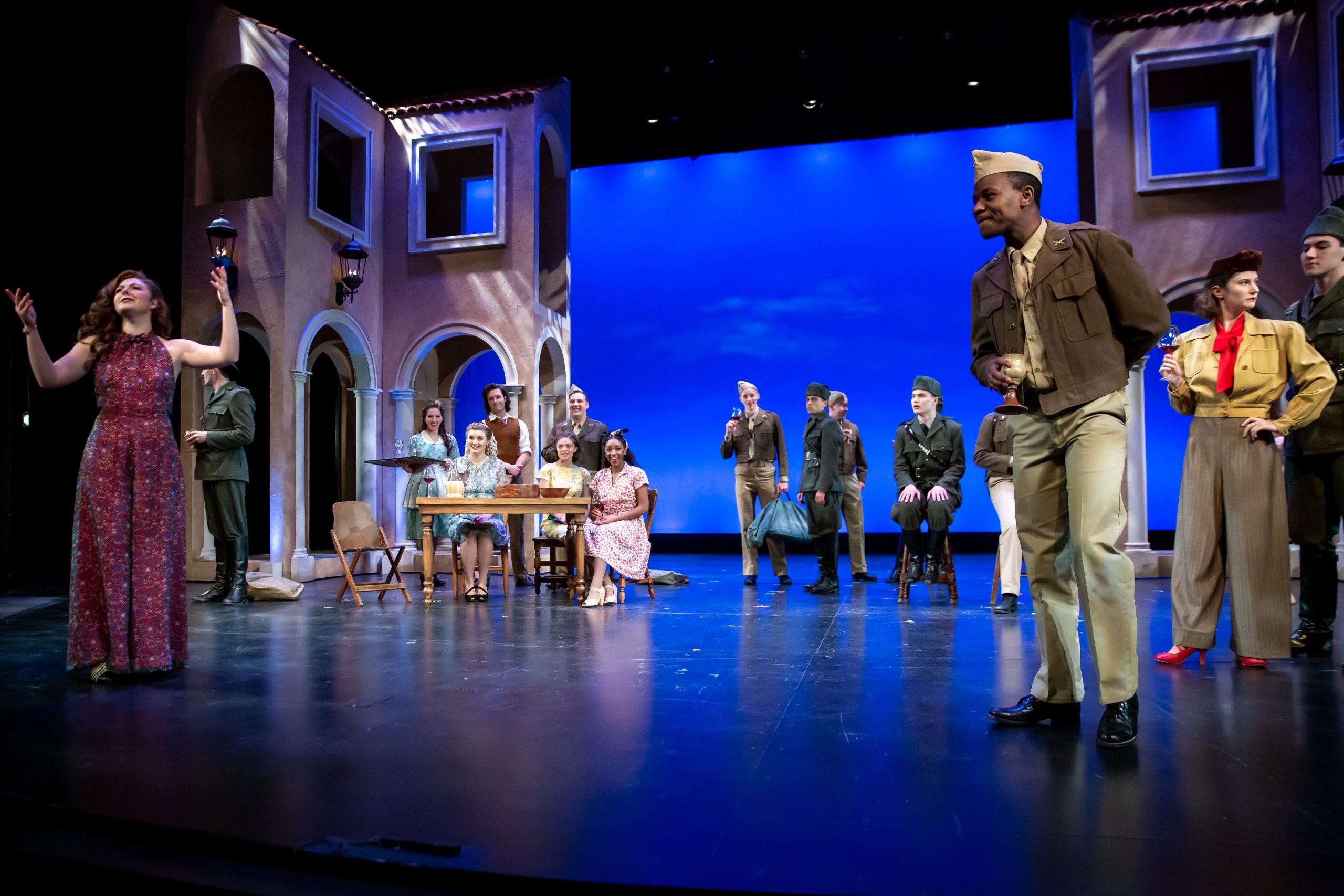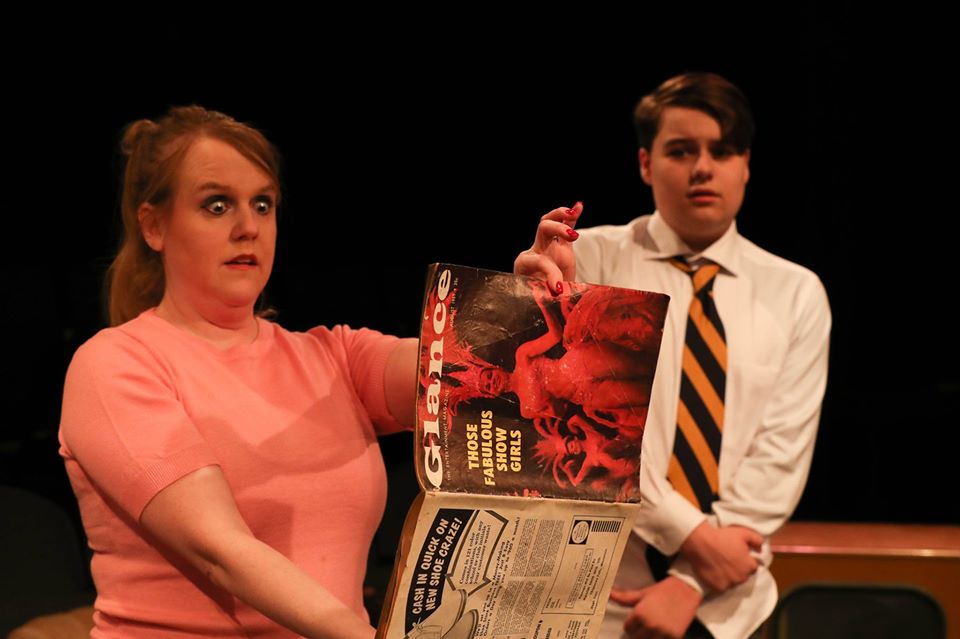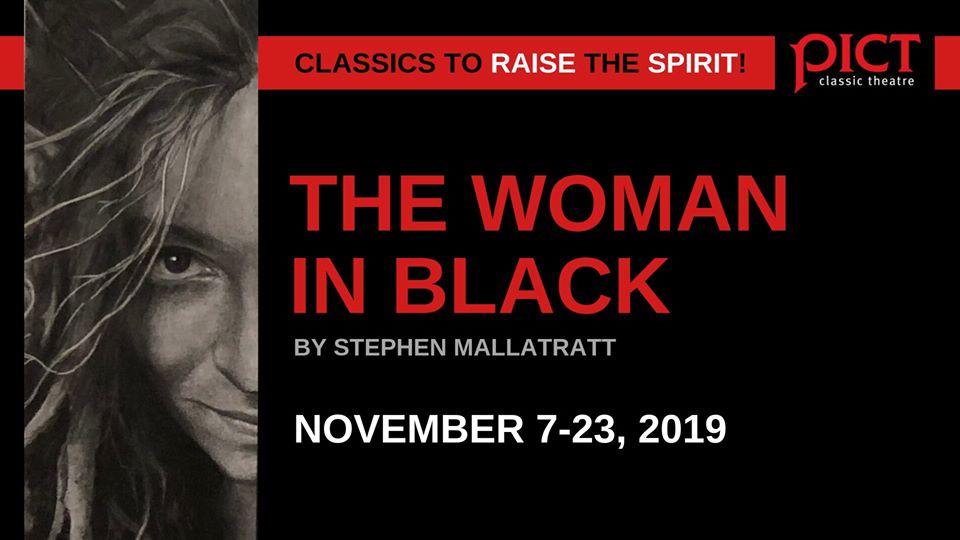by Michael “Buzz” Buzzelli, ‘Burgh Vivant
A group of thirteen-year-old dancers in Liverpool, Ohio give it their all to win a series of dance competitions that will get them to Nationals in Tampa, Florida in Clare Barron’s absurdist play, “Dance Nation.”
Side note: Tampa, Florida is the Mecca to this dance troupe. The girls speak of it as if it was Christmas wrapped in a winning lottery ticket.
Dance Teacher Pat (David Conrad) picks Zuzu (Hope Anthony) for the lead of the new routine over perfectionist Amina (Liron Blumenthal), who is, by far, the best dancer in the troupe, causing Zuzu and Amina’s friendship to unravel. Meanwhile, the ensemble shares their thoughts and feelings to each other (and the audience in outrageous monologues).
Imagine “Dance Moms” written by Eugene Ionesco on an acid trip. Some lines of dialogue seem to be clipped from the show, Maddie Ziegler on the reality TV show once said, “I don’t like to lose, but I don’t ever lose anyway.” It sounds very close to one of Amina’s humble-brags.
“Dance Nation” crawls into the bizarre headspace of a group of children (played by adults) revealing their innermost thoughts – some are naïve musings – others are dark and twisted. The result is an irreverent and hilarious tale.
Maeve (Cary Anne Spear) weaves a delightful and fantastical story about the power of flight. It’s hard to tell if Maeve has a secret superpower or a desire so strong that she believes she can truly soar around the world.
Sofia (Mei Lu Barnum) experiences a female rite-of-passage seconds before she’s about to dance in the competition. She pivots from shock and horror and embraces her personal power. Suddenly, she’s William Wallace, the 13th Century Scots warrior from “Braveheart.”
Ashlee (Lissa Brennan) has the most potent level of self-confidence any child has ever had.
Things get a little crazy for the kids as they pursue their dreams.

Anthony does a spectacular job as the every-woman. She is a bundle of fears and doubts – until she makes a momentous decision that frees her. You can almost see the burden lift from her as she announces her revelation to her “boyfriend,” Luke (Jerreme Rodriguez).
Blumenthal is charismatic. She moves like a dancer. She is graceful and confident.
Conrad is perfect as the preening martinet who pushes and punishes his young charges. The character is big and bold, but Conrad brings a deeper subtext to the character.
Brennan’s delivery of Ashlee’s ode to her body and mind is a showstopper. She owns this monologue. Brennan is dynamic.
Ironically, Spear, one of the more senior cast members, plays the most naïve member of the troupe. Her performance is so astonishing you forget you’re watching an adult woman and begin to believe she’s a thirteen-year-old girl, saddled with all the anxiety, dreams and hopes little girls carry around in their panda-shaped backpacks.
Nancy McNulty plays a series of dance moms. Her finest scene is as Luke’s mom, trying to coax a decent conversation out of her monosyllabic son.
There isn’t a weak link in the cast. Director Melissa Martin keeps the pace frenetic and the 90 minute show breezes by. The large cast on the small stage never overwhelms. It’s a miraculous testament to her skill.
Barron’s dialogue is unusual yet so natural. The kids swear like Mamet on shore leave, but the colorful language is used to comic effect.
This production boasts a killer soundtrack used to great effect by sound operator Ben Peters.
She does, however, make an allusion about the tight-knit troupe resembling a wolf pack. It is a muddled analogy that breaks the willing suspension of disbelief, but it doesn’t matter. There doesn’t seem to be an ending to the show. The multiple subplots and character studies are just meant to be enjoyed.
If you’re looking for traditional storytelling, you’re in the wrong theater. If you want an absurd comedy about the pitfalls of competition, “Dance Nation” is your jam.
-MB
“Dance Nation” runs until December 15 at the Bingo O’Malley Studio, barebones productions, 1211 Braddock Avenue, Braddock, PA 15104. For more information, click here.
















